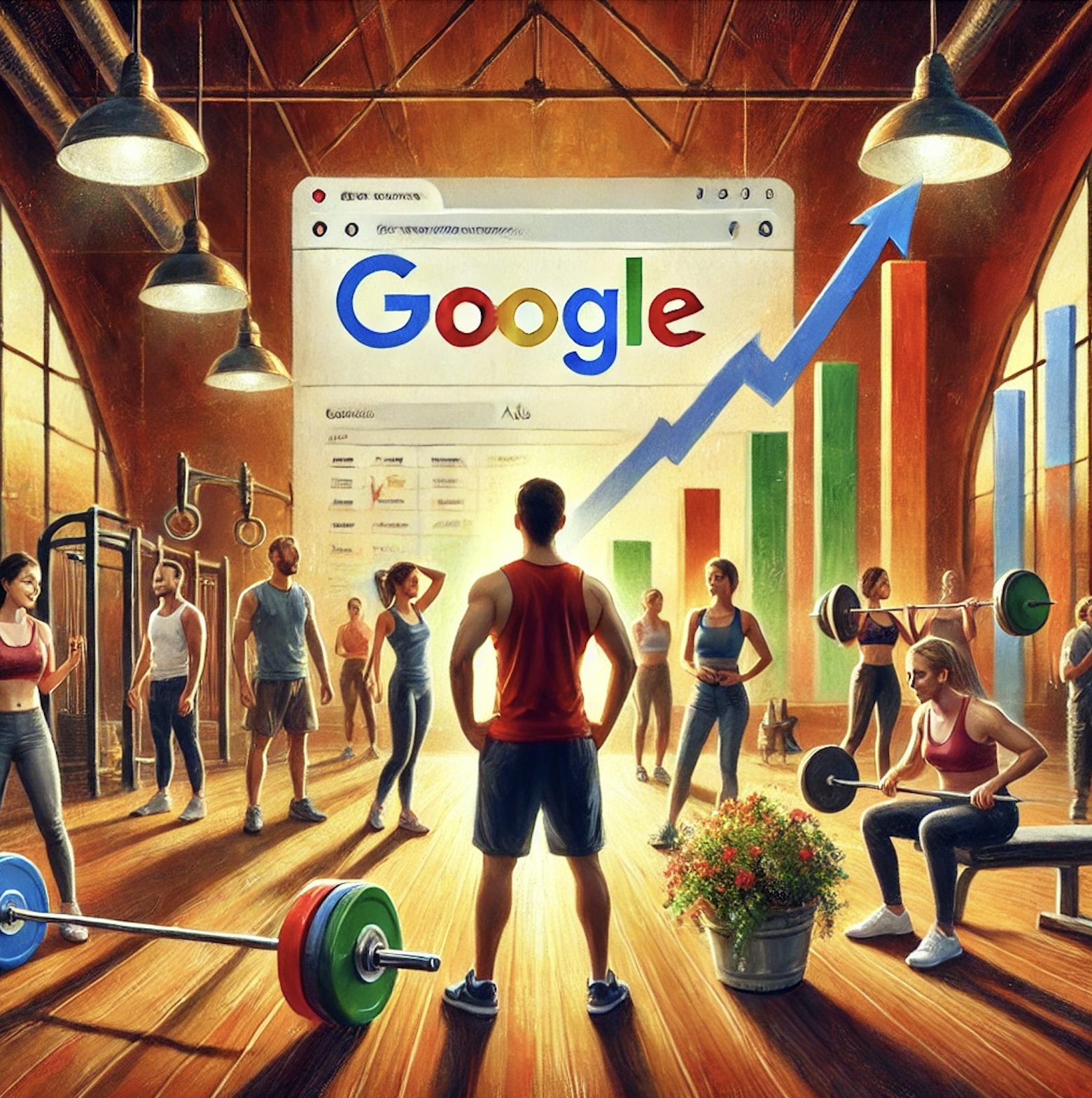What Are Landing Pages?
Before we explain the benefits of a campaign landing page and the reasons why you should have one for your business, we want to briefly touch upon what a landing page is so that we’re on the same page (pun intended).
Very simply, a landing page is the first place that a user lands on when clicking on an ad or a link to your website. This is a very broad definition of the term, and in fact, following this definition, any regular webpage can be considered a landing page—even your homepage.
This isn’t technically incorrect; however, the problem with this definition is that it isn’t specific enough and you can end up using any page on your website as a landing page. Of course, this isn’t ideal, especially when you’re running paid ad campaigns and you want users to convert. Presenting them with your homepage isn’t the best course of action as it’s much too broad and it won’t necessarily convince users to take any action.
Therefore, a more specific definition would serve us better: a landing page is a minimalistic webpage that’s been created solely to be part of an advertising campaign. Because of this, you’ll find that landing pages are different from general webpages, and they’ll often have more images, far less text, and no navigation.
There are many types of landing pages, each with their own particular uses and format. Using one over the other will depend on your particular marketing goals, business model, etc. as not every landing page will work for every business.
How Landing Pages Work
Landing pages work by presenting visitors with a webpage that’s been built with direct messaging and prominent CTAs (calls-to-action) in order to persuade them to take a very specific action. In fact, you’ll find that the best landing page examples are often quite minimalistic.
You’ll easily notice that they don’t have much text, they’ll often have very big and beautiful images, they won’t have any navigational links, and some of them barely have anywhere to scroll to! This is because landing pages are designed to minimize distraction as much as possible in order to get visitors to perform a desired action.
And since most people have short attention spans, these pages will very often have massive and catchy headlines in order to immediately hook visitors. At the same time, they won’t have much text so that users’ attention isn’t lost when they’re trying to understand what the landing page is about.
Why Landing Pages Are Important
Landing pages are important because they’re an essential aspect of paid advertising and an indispensable part of the sales funnel. Since pay-per-click marketing needs a lot of money to work, due to the simple fact that you’re paying for the traffic you receive, you need to optimize the customer journey to the max in order to secure as many clients as possible.
Sticking your generic homepage in Google Ads, for example, won’t always serve your needs because:
- Your homepage can be easily discovered through organic search, so maybe it’s best to make use of SEO in that case;
- Your homepage isn’t always designed to be specific enough for users to convert, as they’re usually designed to be general representations for your business;
- Your homepage will have too many distractions for it to work as a designated landing page for a paid ad campaign.
Of course, if you’re only using Google Ads to boost your brand awareness and you’re paying per click but paying for every 1000 impressions, then there’s nothing wrong with using your homepage. However, if you’re paying for each click, then having something as generic as a homepage is bound to create a hole in your finances.
Landing Page Benefits and Disadvantages
Now it’s time to dive deep into the subject that we’ve set out to answer: the benefits of a dedicated PPC landing page. Not only will we understand the importance of landing pages that way, but knowing the benefits of landing pages also answers the question of whether landing pages are effective or not.
By the end of our list of benefits, you’ll come to understand that not only do landing pages offer many benefits, but they’re pretty much imperative to have if you ever want to engage in paid advertising.
Finally, we also think it best to close off with the disadvantages of landing page creation and landing pages in general. We always try to inform our readers, as well as our clients, of the pros and cons of every aspect of paid advertising so that they can thoroughly understand what they’re committing themselves to.
Benefits of a Landing Page
As we’ve said already, knowing the benefits of using landing pages will help us understand both their importance and their effectiveness. Therefore, make sure to thoroughly understand the landing page advantages that we’re going to present you with so that you can understand this marketing tool as best as possible.
1. Landing Pages Are Optimized for Conversions
The first and what we would consider to be the most important benefit that you would receive from a landing page is that they’re designed to be mean, lean converting machines. In fact, every aspect of a landing page that has been carefully crafted in order to ensure that a user interested in what you have to offer will take that next step.
This is firstly because landing pages are highly relevant to make the user click in the first place. So, for instance, let’s say that you’re running an advertising campaign for a brand new smartphone that you’re releasing. A user that clicks on your advert won’t be too happy if they end up on a page about mobile lanyards, for instance.
Relevance is key for customer satisfaction; at the same time, it’s one of the criteria for Google’s Ad Quality Score, making it doubly important. Moreover, all the features of a landing page (little text, beautiful images, CTAs, etc.) contribute to being more persuasive than your average webpage.
Therefore, it might also be a good idea to make use of the best landing page templates, as these templates would be created by people who already have plenty of experience with landing page creation; and so they would already be optimized for conversions without you really having to do much other than edit the template.
2. First Impressions Count
As the saying goes, “first impressions count,” and this is especially true in marketing and business. In fact, it’s been found that you only have about 7 seconds to make a good impression, which is hardly any time at all. Therefore, when presenting a page to a user, it needs to immediately hook them or else you’ve lost them.
This is where landing pages come in: by presenting an expertly crafted landing page to your visitors, there’s a chance that you’ve convinced them to become customers by having left a good impression on them.
In other words, even if a visitor doesn’t convert as soon as they land on your website, leaving a good impression on them goes a long way because they might eventually revisit your website in order to make a purchase. And what else could you possibly want?
3. You Can Promote Specific Products & Services
As we’ve said above, landing pages are most of the time built as part of an advertising campaign. And usually, advertising campaigns are designed to promote a particular product or service; for example, if you run a shoe brand and you’ve just created a new model, a landing page would serve fantastically for advertising this model.
This is because the power of the landing page comes from its direct messaging and specificity. When creating a landing page, you’re only going to be promoting a particular product. That way, by shining a spotlight on that product, you’re creating plenty of context around the new product.
For example, what benefits does the new model of shoe offer? What are the materials it’s created from? When addressing all of these questions and more, you’re explaining the value of the product and thus making it easier to convince a visitor to purchase that product.
4. Landing Pages Are Testable
Due to the fact that there are many moving parts involved in landing pages, you can never be quite certain what’s most effective in converting users. Moreover, choosing one image or headline over another can make all the difference when it comes to convincing a user to convert!
Therefore, you can’t approach landing pages with a “set-it-and-forget-it” attitude as they require a lot of touching up and testing until you strike landing page gold by finding the version that seems to get the most conversions. For this purpose, a little thing called A/B testing comes in very handy.
Essentially, with A/B testing (or split testing as it’s also known) you compare the performances of two different versions of the same landing page by presenting them randomly to different people. This removes a lot of the guesswork involved in optimization, allowing you to track which version performed best and make that your landing page.
5. Landing Pages Are Straight-to-the-Point
We’ve already seen that landing pages have direct messaging that isn’t surrounded by the usual clutter of a regular webpage. At the same time, however, with a landing page you could easily level with your customers, explaining the value of your brand to them and what solutions you can provide them with.
For instance, you can explain what your brand stands for on your landing page, outlining your company values and goals. Users appreciate honesty and explaining what you stand could easily earn you a customer or two. Furthermore, you could also explain what solutions your brand, products, and/or services offer to prospective clients.
Let’s say, for example, you offer pay-per-click software. If you have a unique tool that no other competitor on the market offers, you could make this a prominent part of your landing page, explaining the benefits and value this tool can offer to a client. It’s easy to see why something like this can score you a new client.
6. They Can Boost Your Credibility
A landing page is also a perfect opportunity to leverage the immense power of customer reviews and testimonials. Much like how you pay attention to customer reviews when deciding what product to purchase or restaurant to visit, visitors that land on your page will do the same.
This is why you need to seize the opportunity to insert what’s known as social proof in your landing pages. Social proof consists of things like reviews by influencers or prominent people in your field; customer testimonials; logos of renowned brands who have used your services, etc.
Having these things on your landing page will definitely make you seem more trustworthy in the eyes of customers.
7. They Can Boost Your Brand Awareness
Even if your landing pages don’t manage to convince a visitor to perform your desired action (whether that’s a purchase, filling a form, etc.), they still have the ability to increase your brand awareness, meaning that you might have created a potential future client.
Naturally, the primary goal of landing pages is to persuade a visitor enough to become a customer, a subscriber to your newsletter, etc. But even if you didn’t manage to do any of that, your landing page has to be amazing enough that you’ve made enough of a good impression on your visitor that they won’t easily forget you.
That way, when they come across your brand again, they might be more willing to convert. Or else, when they’re in the market for the kinds of products or services you offer, they might instantly go to your website instead of browsing through the different companies and shopping around.
8. They Allow You to Easily Measure Metrics
For the final benefit of having a landing page, we’re going to look at their extremely useful ability to keep track of important KPIs (key performance indicators) and other landing page metrics. This is extremely important as not only does it allow you to test different versions of landing pages, but it helps you understand the performance of your landing page.
Tracking landing page performance isn’t only useful for feeling good about yourself as a marketer; it’s highly important for when you have to report to a client, manager, or employer about the performance of their marketing strategy. This is important in order for key stakeholders to evaluate their marketing strategy with hard data.
Finally, you can also understand where most of your visitors are coming from, which helps a great deal in order to make data-driven strategic decisions. For instance, let’s say that Google Ads and Facebook Ads are bringing the most clients; that way you know that if you were to increase your investment in these platforms you’ll gain better results.
Disadvantages of Landing Pages
However, not everything about landing pages is fantastic, and understanding the downsides of this form of marketing is key to having not only a thorough understanding of the concept, but also making sure that investing in a landing page doesn’t turn out to be a waste of resources. So, let’s get down to it.
1. Landing Pages Are Temporary
Arguably, the biggest drawback of landing pages is that they are temporary by their very nature. Since landing pages only last as long as their advertising campaigns, you might have created a landing page that’s going to be used for maybe a month or two at most.
Because these pages will only last for a short while, unlike regular webpages which can exist for years and years, investing in them might seem like a total waste.
2. They Are Resource-Intensive
Landing pages also prove to be rather expensive at times. The same point can be made for every webpage, but we would disagree: for instance, writing one of these blog posts hardly costs us anything other than the time it takes to actually write it. On the other hand, the same cannot be said for landing pages.
Firstly, there’s the matter of whether you’re building your landing page yourself: if you don’t have the experience or any idea of how to create a landing page, then you might want to employ someone else to do it for you, and that would require the cost of hiring an external expert or agency.
Otherwise, if you’re creating it yourself then you need to account for the cost of the landing page creator that you’re going to be using, and the best landing page builders aren’t necessarily cheap. And even if you use a template, which also costs money, creating a landing page is going to take you a whole day if you’re new to the process.
3. They Have to Be Specific by Necessity
Finally, since landing pages are often only used to promote a specific product or service then you’re going to need to create a separate landing page for each product or service that you would like to promote. This makes creating landing pages even more resource-draining than ever before.
Conclusion: The Benefits of Landing Pages for Business
So, should you use landing pages? After looking at those amazing landing page benefits, it’s hard to conclude any other way than to say: yes, you should!
As we’ve seen, landing pages are designed to maximize conversions by minimizing distractions as much as possible. Not only that, they can serve to boost your brand awareness, increase your credibility and trustworthiness as a brand, help to convey your brand’s core values, and other similar benefits.
But other than the nature of the benefits themselves, we’ve seen that the benefits of landing pages in digital marketing far outnumber the drawbacks!
And not only that: research has shown that, on average, companies that use between 10–15 landing pages receive around 55% more conversions than those companies that use fewer than 10. So, even cold hard data shows that landing pages are extremely effective.
FAQs
Which is the most important purpose of a landing page?
The most important landing page use is to convince a client to perform some sort of desired action on your page (this is known as a “conversion”). The desired action can either be a purchase, filling in a form, downloading a freebie in exchange for contact details, etc.
How useful are landing pages?
Landing pages are extremely useful as they can increase your conversions and decrease your overall CPA (cost-per-acquisition). In reality, these 2 things are related: with higher conversions, your costs are decreased as you’ve spent the same amount of money as you would have without any landing pages but gotten more customers in return.
What are the benefits of creating a content rich landing page?
A content-rich landing page is useful if you offer a complicated product or service that requires a lot of explanation. That way, you can be sure that whatever you’re marketing can be understood by the customer from your landing page. However, be warned that not every kind of customer will appreciate a lot of content on your landing; make sure you’re marketing to the right kind of person that doesn’t mind having a bit to read.
Does Google like landing pages?
Having a relevant landing page that provides a high-quality user experience is actually part of Google’s criteria for their Ad Quality score. With higher Ad Quality, you can potentially increase your Ad Rank (how high up in the search results page your ad appears), in turn increasing your ad’s visibility.
Why are landing pages important for lead generation?
Landing pages are important for lead generation because they’re made for the specific purpose of getting visitors to perform a particular action. With regards to lead generation, this is usually to fill in a form or provide contact details in exchange for a freebie, like a free downloadable ebook, cheat sheet, checklist, etc.



